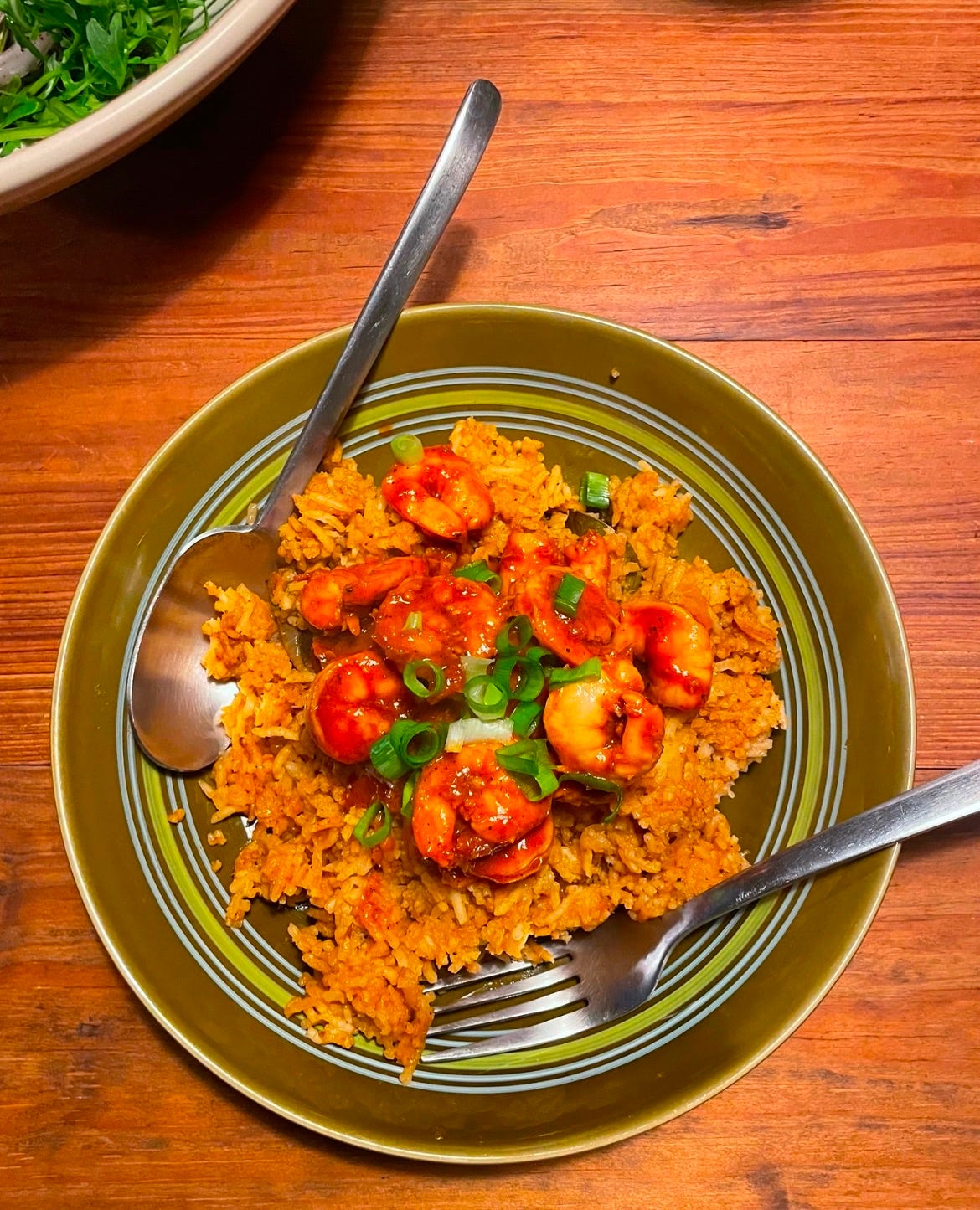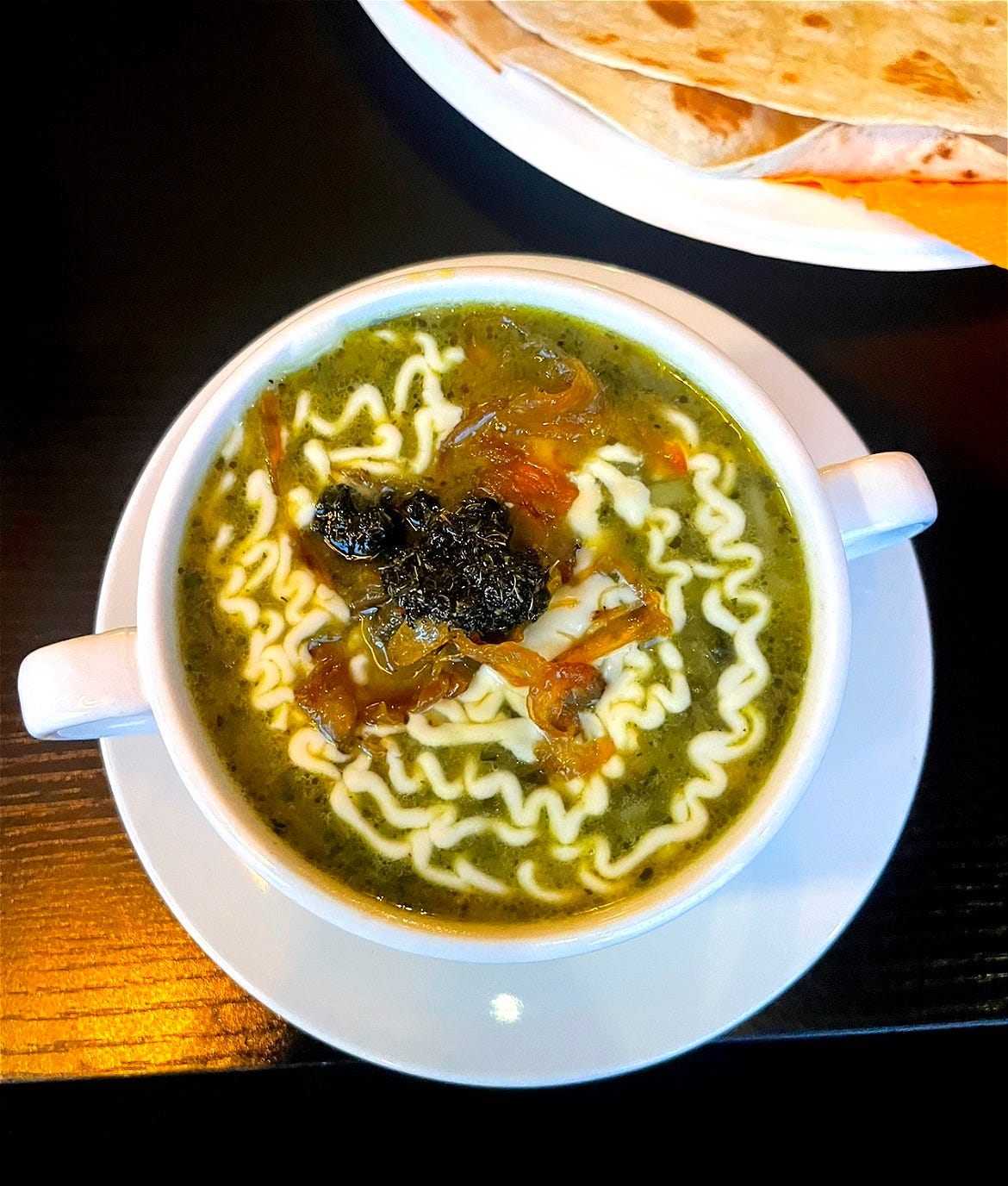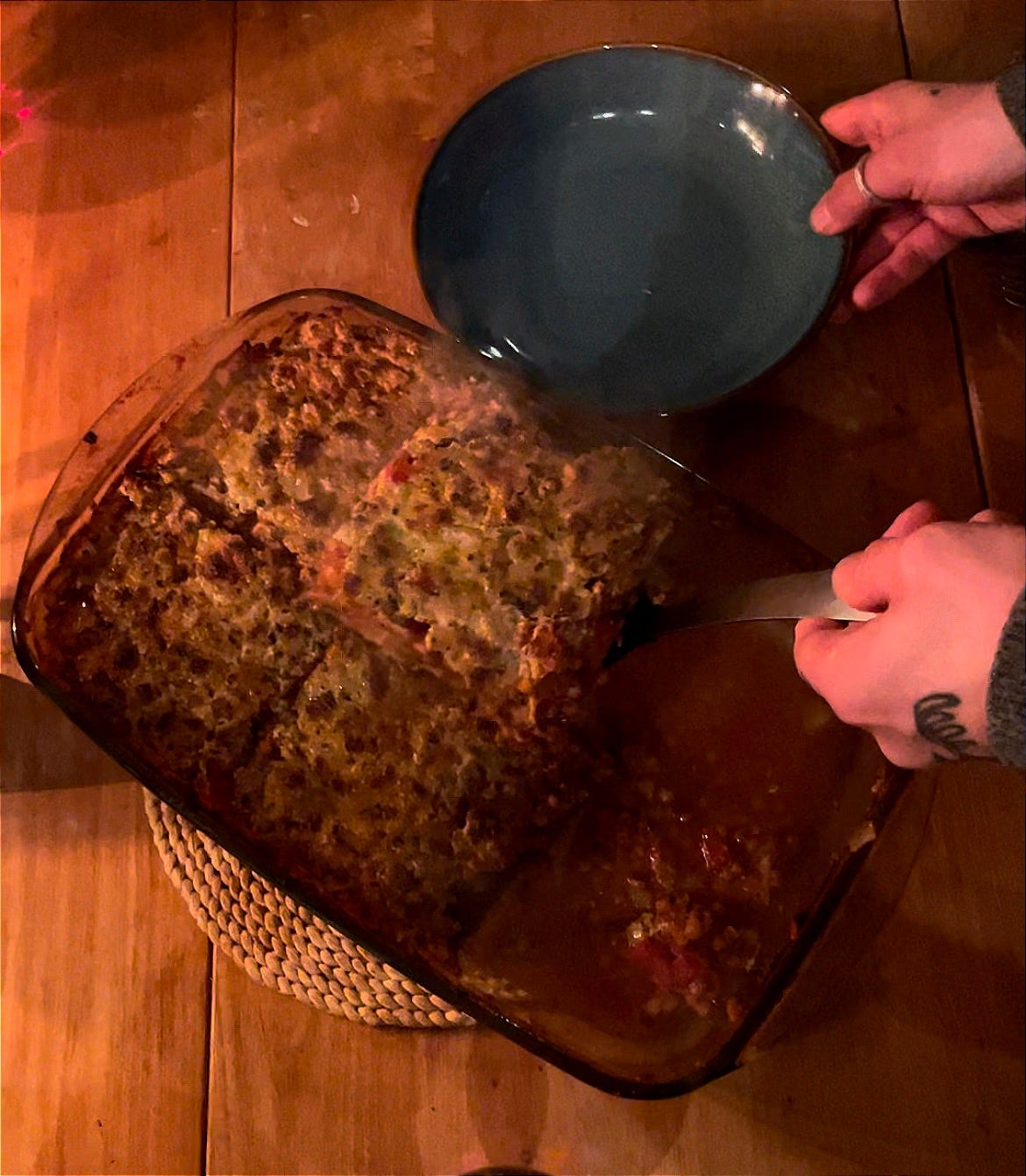"Where The F**k Have You Been All My Life?"
6 Meals I Am Grateful I Got To Try For The First Time Before I Die.
“Who wouldn’t want to experience different, new sensations, especially in a world overflowing with so much greatness?” — words from the late Anthony Bourdain that have always stayed with me. In the spirit of these very words, The Last Supper Project has, over the past ten weeks, been more than just a gateway to strangers—it has been an open door to flavors, cultures, and stories from across the globe. I remain deeply humbled that these recipes have woven themselves into my journey, and I cannot wait to bring them to life in my upcoming book. Below are six [6] of my favourites so far:
Surinamese Saoto Soup
My Experience: 9.5/10
My host, Emeralda and her sons called it their favourite feel good dish and after trying it, I know why. Saoto Soup is a richly spiced Surinamese-Javanese dish with deep cultural significance. It originated from Javanese immigrants who were brought to Suriname by Dutch colonizers in the late 19th and early 20th centuries as contract laborers. Over time, their cuisine merged with Surinamese flavors, creating Saoto, a fragrant, clear broth infused with lemongrass, galangal, and spices, typically served with shredded chicken, rice, bean sprouts, and crispy fried potatoes. I couldn't imagine leaving this work before trying it and I’m so grateful that I did.
Cypriot Molohiya [Vegan]
My Experience: 10/10
I was very fortunate to break bread with charming student in his dorm and cooked this from scratch with ingredients that are very similar to Ghanaian Kontomire stew [also known as palava sauce]. Cypriot Molohiya (Μολοχία) is a dish with deep historical roots, reflecting Cyprus' Middle Eastern and Mediterranean influences. The dish originates from the molokhia plant (Corchorus olitorius), also known as Jew’s mallow, which has been cultivated since ancient Egypt and spread across the Levant, North Africa, and Cyprus through Arab and Ottoman influence. It was one of the best vegan meals I’ve ever had and the company was even better.
Arabian Gochujang Shrimp [ Pescetarian ]
My Experience: 8/10
The two Bedouin sisters who hosted me in Brussels described Gochujang as their go-to comfort dish, and the Korean chili paste at the heart of this dish, has been a staple of Korean cuisine for centuries, dating back to at least the 18th century during the Joseon dynasty. Made from fermented soybeans, glutinous rice, and red chili powder, gochujang imparts a deep umami heat that pairs beautifully with proteins like shrimp. On the other hand, Arabian cuisine is renowned for its masterful use of spices—cumin, coriander, sumac, cardamom, and saffron—each contributing layers of warmth and complexity to dishes. And though shrimp isn’t my favourte it was so brilliant to experience this dish. By integrating gochujang into this framework, the dish takes on a contemporary twist—merging the sweetness, heat, and depth of Korean spice with the smokiness and richness of Arabian cooking.
Persian Ash Reshteh Soup
My Experience: 9/10
The Kurdish Australians who hosted me in Amsterdam couldn’t wait for me to try this Ash Reshteh. It's a traditional Persian noodle soup with a history dating back over 2,000 years. It is deeply rooted in Iranian culinary traditions and is particularly associated with Nowruz (Persian New Year) and other important gatherings. The dish consists of reshteh (thin Persian noodles), legumes, spinach, herbs, and kashk (fermented whey), creating a rich and hearty flavour profile. It was like nothing I have ever tried but I definitely loved every sip of it. Would truly recommend.
Greek Moussaka [ Vegan ]
My Experience: 7.5/10
The vegan couple that hosted me described this as a classic favourite and serve it with the great red wine. Moussaka is a classic Greek dish with deep historical roots, though its origins can be traced back to the Levant and Ottoman Empire. The dish, as it is known today—layered eggplant, spiced minced meat (usually lamb or beef but not in the one I had been served ), and creamy béchamel sauce—was popularized in Greece in the 1920s by chef Nikolaos Tselementes, who introduced the French-style béchamel topping. It's something I’m not sure I would seek out to try again but in the moment I throughly enjoyed the delicate balance of flavours and it was an incredibly nutritious meal that was had round intimate and complex conversations.
Middle Eastern Shakshouka [ Vegetarian ]
My Experience: 9/10
My Dutch model and former chef served this at home cooked meal hot! Shakshouka is a North African and Middle Eastern dish with roots tracing back to the Maghreb region (Tunisia, Algeria, Libya) and later spreading across the Levant. The dish consists of poached eggs simmered in a spiced tomato and pepper sauce, often flavour with garlic, cumin, and paprika. So divine and so much beautiful flavour in every way. This was technically my first time experiencing the dish and it was one the best things I’ve had on eclectic journey of last suppers. Needless to say, all I can know with profound conviction is that there was nothing left on my plate by the end of this meal, I was grateful to have had the chance to witness the process and I will be trying this recipe myself.
Special Mention :









